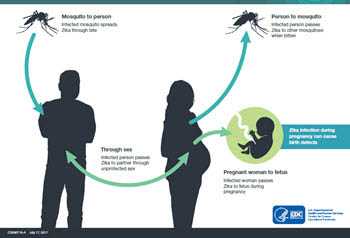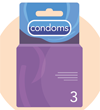Men and Zika
Did You Know?
- Zika virus (or Zika) is still a risk in many parts of the world.
- Zika is spread primarily through mosquito bites, but it can also spread through sex.
- A pregnant woman can pass Zika to her fetus, which can cause serious birth defects.
- Many people infected with Zika won’t have symptoms or will only have mild symptoms. For this reason, if you travel to an area with risk of Zika, you can be infected with Zika and not know it.
- You can pass Zika to others through sex, even months after infection. This means Zika is a concern not only for women who are pregnant or may become pregnant but also for their partners.
What Men Can Do to Stop the Spread of Zika During and After Travel
- If you have a pregnant partner, she should not travel to areas with risk of Zika. See more information on precautions pregnant women should take.
- If you and your partner are planning a pregnancy, talk to your doctor or other healthcare provider before traveling to areas with risk of Zika.
- Because you can be infected and spread Zika to others without knowing it, it is important to take precautions even if you don’t have symptoms.
- There is no specific medicine or vaccine for Zika. But there are steps you can take to prevent Zika.
If You Travel to an Area with Risk of Zika
There are two key steps you should take to prevent Zika.
1. Prevent Mosquito Bites During Travel and for 3 weeks After Your Return
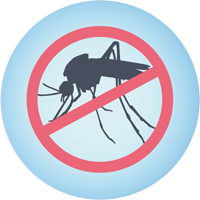
Even if you don’t have symptoms
- Preventing mosquito bites while traveling will lower your chances of getting Zika from infected mosquitoes.
- Preventing mosquito bites after you return will lower your chances of spreading Zika to mosquitoes back home. Local mosquitoes can get infected from biting you, then bite other people and spread Zika to them.
2. Use Condoms (or Don’t Have Sex) During and After Travel
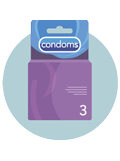
This will prevent spreading Zika through sex.
The period of time during which you should use condoms after travel depends on your situation:
Men with Pregnant Partners
Use condoms or don’t have sex for the entire pregnancy
- After travel to an area with risk of Zika, use condoms every time you have sex for the entire pregnancy. To be effective, condoms should be used from start to finish, every time during vaginal, anal, and oral sex.
- Not having sex eliminates the risk of sexually transmitting Zika to your partner. It is important to help protect your partner throughout her pregnancy because:
- You may have been infected with Zika and not know it, since it often does not cause symptoms.
- There is no available test to know if you have Zika in your semen or how likely you are to pass Zika through sex. Zika can stay in your semen and may be passed to your partner (and the fetus) for months after infection, even if you have no symptoms.
- Zika infection during pregnancy can cause serious birth defects.
- Pregnancy and Zika
Men Planning Pregnancy with Their Partners
Wait at least 6 months before trying to conceive
- After travel to an area with risk of Zika, wait at least 6 months after you return, or after symptoms start (if you develop symptoms), before trying to conceive with your partner.
- During this time, use condoms to help protect your partner from getting Zika through sex.
- Protect your partner so she can have a healthy pregnancy
- You may have been infected with Zika and not know it, since it often does not cause symptoms.
- There is no available test to know if you have Zika in your semen or how likely you are to pass Zika through sex. Zika can stay in your semen and may be passed to your partner (and the fetus) for months after infection, even if you have no symptoms.
- If your partner becomes pregnant and infected with Zika, it can cause serious birth defects.
For more about Zika risks and considerations
- Zika information for those thinking about pregnancy
- Special considerations for women undergoing fertility treatment
Men Who Are Not Concerned About Pregnancy
Consider using condoms or not having sex for at least 6 months
- The 6-month period should start when you return from travel or after symptoms start, if you develop symptoms.
- This will help protect your partner from getting Zika through sex if you’re infected and don’t know it. Condoms are the only method for preventing both pregnancy and the spread of Zika.
- If you or your partner has symptoms of Zika or have concerns, talk to a doctor or other healthcare provider.
Traveling with Children
- Most children infected with Zika have no symptoms or have only mild illness, similar to adults with Zika infection.
- CDC’s travel guidance for areas with risk of Zika applies to infants and children, as well as adults. However, there are special things to consider when protecting your baby or child from mosquito bites. See What Parents Should Know about Zika.
If You Have Symptoms of Zika and Might Have Been Exposed
- See a doctor or other healthcare provider right away if you have fever, rash, headache, joint pain, red eyes, or muscle pain and you have recently traveled to an area with risk of Zika.
- Tell the doctor or other healthcare provider about your travel history or possible exposure.
- A blood or urine test can identify Zika infection. See more information on testing for Zika.
- Take medicine such as acetaminophen to reduce fever and pain.
- Don’t take aspirin or other non-steroidal anti-inflammatory drugs (NSAIDS), like ibuprofen until a healthcare provider diagnoses your condition and can rule out the possibility that you have dengue. Dengue is another disease spread by mosquitoes that causes symptoms similar to Zika and can cause internal bleeding. NSAIDS can increase the risk of bleeding if you have dengue.
- If you are taking medicine for another medical condition, talk to a doctor or other healthcare provider before taking other medicines.
- Make sure to take precautions to prevent the spread of Zika.
- Use insect repellent to prevent spreading Zika to mosquitoes around you
- Consider using condoms for at least 6 months after symptoms start (or for the entire pregnancy, if your partner is pregnant) to help protect your partner.
- Page last reviewed: September 7, 2017
- Page last updated: September 7, 2017
- Content source:


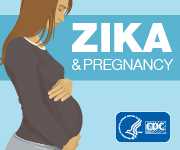
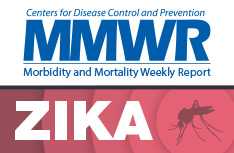

 ShareCompartir
ShareCompartir
